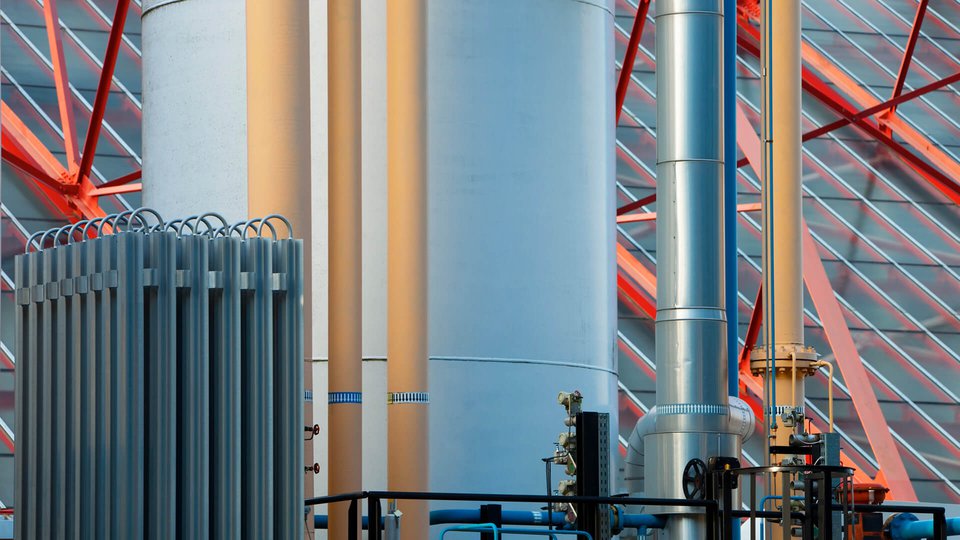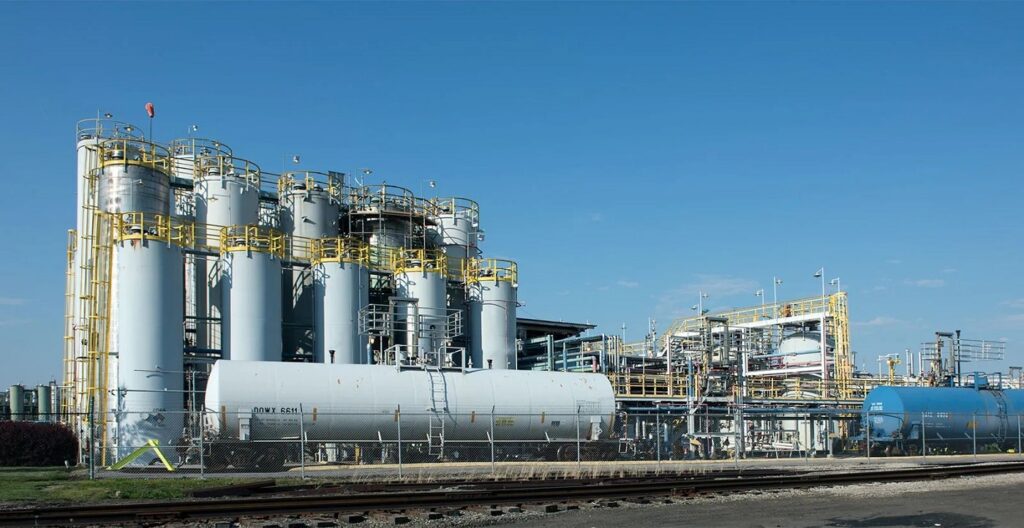Carbon Capture, Utilization, and Storage (CCUS) is a crucial technology for decarbonizing the UK economy and mitigating the effects of climate change. It involves capturing carbon dioxide (CO2) emissions from various sources, utilizing the captured CO2 in various applications, and storing it deep underground to prevent its release into the atmosphere.
Carbon capture, usage and storage
The UK’s focus on Carbon Capture, Usage, and Storage (CCUS) plays a crucial role in achieving its goal of net-zero emissions by 2050 and promoting a greener economy.
The country plans to implement CCUS facilities in two industrial clusters by the mid-2020s, with an ambitious target of expanding to four clusters by 2030. By this time, they aim to capture and store 20-30 megatonnes of carbon dioxide annually.
One of the UK’s key advantages is its geological suitability for CCUS. The UK Continental Shelf offers significant storage capacity, estimated at approximately 78 billion tonnes of CO2, making it one of the world’s leaders in CCUS technology.
The deployment of CCUS technology is crucial for reducing emissions from industries that are challenging to decarbonize, including heavy industry, energy production, and specific manufacturing processes.
By embracing CCUS, the UK is taking significant steps towards building a more sustainable and low-carbon economy, supporting its broader environmental and climate objectives.

Opportunity highlights
CCUS (Carbon Capture, Usage, and Storage) can play a pivotal role in rapidly increasing low-carbon hydrogen production to meet the rising demand across various sectors, including transportation, industry, and buildings. Cleaner blue hydrogen, in particular, is a significant driver in the UK’s hydrogen market. Collaborating with industry partners, the UK aims to establish 10GW of low-carbon hydrogen production capacity by 2030.
The CCUS investor roadmap outlines a strategy for government and industry collaboration to harness the strength of an industrialized CCUS supply chain in the UK. This approach aims to maintain an investment-friendly, cost-effective, and delivery-focused CCUS sector while supporting its long-term growth. The roadmap is organized into four key areas: establishing a stable regulated market, enhancing supply chains, developing workforce skills, and promoting research and innovation.
By positioning the UK as a leader in global CCUS development, investors can test and implement their CCUS solutions within a stable environment, effectively managing the risk between the private and public sectors. This approach can position the UK to serve the growing global demand for CCUS solutions as activity continues to expand.
Commercial maturity
The deployment of CCUS (Carbon Capture, Usage, and Storage) at scale within complex industrial clusters is an exciting and strategic initiative for the UK and its associated supply chain. Research commissioned by the UK Department for Business, Energy and Industrial Strategy (BEIS) indicates that the global CCUS market has the potential to reach a value of £260 billion by 2050.
The UK’s goal is to establish CCUS in four industrial clusters by 2030, creating what are termed ‘SuperPlaces’ in regions such as the North East, the Humber, North West, Scotland, and Wales. This strategic move not only contributes to a more environmentally sustainable UK but also opens up new economic opportunities for companies based in the UK, with a potential global impact.
UK assets
In various regions of the UK, there are valuable assets and early-stage investment opportunities related to hydrogen production and infrastructure:
Liverpool City Region
- Assets include existing facilities for Small Modular Reactors (SMR) and electrolyser production.
- Early-stage opportunities include the LCR Hydrogen Bus project and HyNet blue hydrogen production.
Grangemouth
- This industrial hub is well-connected to major pipelines that link Scotland with mainland Europe.
- Early-stage investment opportunities exist at the power station for Carbon Capture and Storage (CCS) in Peterhead.
Solent
- Assets include the H2 Research and Refuelling Station.
- The hydrogen super-hub in the port of Southampton presents early-stage investment opportunities.
Wales
- Assets include Energy Kingdom at Milford Haven, focusing on blue hydrogen, and an energy hub at Holyhead.
- Early-stage investment opportunities include the Hydrogen Highway and infrastructure development in ports.
Tees Valley
- Assets include existing underground hydrogen storage and the Teesside Freeport.
- Early-stage investment opportunities include a groundbreaking hydrogen transport hub at Tees Valley.
Humber
- Assets include empty gas and salt caverns suitable for hydrogen storage and Equinor’s H2H Saltend facility.
- Early-stage investment opportunities involve shared hydrogen pipelines and green hydrogen projects like Gigastack.
R&D capability
The UK has established a £1 billion Net Zero Innovation Portfolio that will target 10 priority areas, including hydrogen, floating offshore wind, advanced modular nuclear reactors, energy storage solutions, and Carbon Capture, Usage, and Storage (CCUS) solutions.
Additionally, there is up to £100 million in funding allocated for research and development in direct air capture (DAC) technology and other greenhouse gas removal technologies.
To further support the UK’s net-zero emissions goals, the UK Carbon Capture and Storage Research Centre (UKCCSRC) plays a significant role. This center has over 300 academic members collaborating with CCUS organizations worldwide to drive innovation in the field of CCUS.
Business and government support
The CCUS investor roadmap details the shared commitments of the UK government and industry to advance Carbon Capture, Usage, and Storage (CCUS) in the country. It outlines a strategy to establish four CCUS low-carbon industrial clusters, capable of capturing 20-30 million tonnes of CO2 annually across various sectors by 2030. The roadmap summarizes the ongoing efforts of government and industry to create a long-term CCUS market, establish a supportive regulatory framework, strengthen the UK’s CCUS supply chain, and develop skills and capabilities in the field.
A significant part of the government’s support for CCUS is the CCS Infrastructure Fund (CIF), which comprises £1 billion of investment dedicated to the growth of CCUS in the UK.
In addition, new commercial frameworks have been proposed to address various business models related to CCUS in areas such as transport and storage, power generation, and industrial carbon capture. These models are designed to facilitate and encourage stable investment in CCUS projects in the UK.
To enhance its global reputation for regulatory stability and transparency, the UK intends to establish independent economic regulation for CO2 transport and storage (T&S) networks. This approach will enable investors to receive a fair return within a predictable and stable regulatory framework.



